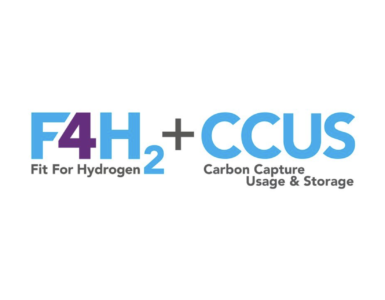Excitement grows about ‘natural hydrogen’ as huge reserves found in France – Euractiv.
While carrying out work to check the risk of firedamp pockets in the abandoned mines of the Lorraine region in May, La Française d’Énergie (FDE) discovered a large deposit of natural hydrogen, igniting hopes that it could be a game changer in Europe’s energy transition.
For years, researchers and businesses in the private sector have been looking for rare natural hydrogen, otherwise known as native or white hydrogen, due to its potential as a clean and renewable energy source.
Philippe de Donato, co-director of research at the GeoRessouces laboratory at the University of Lorraine, told France 3 Grand-Est at the end of May, said:
🔥 What about we co-host a webinar? Let's educate, captivate, and convert the hydrogen economy!
Hydrogen Central is the global go-to online magazine for the hydrogen economy, we can help you host impactful webinars that become a global reference on your topic and are an evergreen source of leads. Click here to request more details
If confirmed, this would be the largest potential natural hydrogen discovered to date in Europe.
Indeed, it is believed that the Lorraine basin could contain 46 million tonnes of natural hydrogen – equivalent to half the world’s current hydrogen production – and enough to contribute to the EU’s decarbonisation objectives significantly.
Natural hydrogen is naturally present in the Earth’s crust and mantle, explains Isabelle Moretti, a researcher at the University of Pau and the Pays de l’Adour. It can be found in several places:
Isabelle Moretti, a researcher at the University of Pau and the Pays de l’Adour, said:
At ocean ridges, in the mountains with ophiolites, remnants of ancient oceanic rocks, but also in iron-rich rocks.
She said in an interview with L’Usine Nouvelle in June 2021.
The resource, which can be harnessed when it degases on the earth’s surface or when extracted with boreholes, has been on scientists’ radars for some time. But a broader interest in the resource arose as world nations sought to replace fossil gas with a clean-burning fuel.
Unlike hydrogen produced from natural gas or electrolysis, its natural counterpart requires no water and little energy to extract while taking up very little land.
In addition, its production is not subject to periods of instability and is even renewable, provided that “we adapt the rate of extraction to the rate of generation, as we do with hot water vapour in geothermal energy,” Moretti added.
Indeed, the Earth continuously produces natural hydrogen through chemical reactions that are mainly related to oxidation of ferrous iron minerals.
All these advantages make natural hydrogen a much cheaper resource than hydrogen produced from electrolysis. The price of natural hydrogen is estimated at €1 per kilo, while renewable hydrogen currently reaches €6, according to a position paper published in February at the request of the European Commission by the Earth2 initiative, a French body bringing together industry and research groups.
Mikaa Mered, a hydrogen specialist and professor at Science-Po Paris said:
All these arguments mean that this would be the lowest-carbon and cheapest hydrogen in the world.
Said Mikaa Mered, a hydrogen specialist and professor at Science-Po Paris who sits on the expert committee of the Forum Hydrogen Business for Climate conference in France.
Huge potential in France
What’s more, natural hydrogen resources generated on Earth are plentiful, says Nicolas Pélissier, chairman of French start-up 45-8 Energy, which specialises in helium and natural hydrogen.
According to his estimates, these would greater than the 90 million tonnes of hydrogen currently produced worldwide, which is 98% fossil-based.
“In France, it is possible to imagine quantities such that the country could be an exporter,” Mered told EURACTIV. France could eventually produce three million tonnes a year, taking into account the resources of the Lorraine basin and the potential currently being studied in the Alps, New Caledonia and the Pyrenees, he added.
This represents just under half of the 6.5 million tonnes of low-carbon hydrogen that the country hopes to produce by 2030.
But resources exist elsewhere in Europe, including Spain, Germany, Kosovo, Iceland, Finland, Sweden, Poland, Serbia, Norway, Ukraine, Russia and Kazakhstan.
Beyond Europe, Mali has been operating a well since 2014, while Namibia, Brazil, Canada and even the United States, which is currently drilling a well in Nebraska, are showing interest.
Nicolas Pélissier, chairman of French start-up 45-8 Energy, said:
At the moment, we are in the phase of evaluating the industrial potential of natural hydrogen,.
“We need to continue developing and adapting new technologies, particularly exploration technologies, to address this issue properly,” he told EURACTIV France.
45-8 Energy has been working on removing some technological barriers by way of a sensor for detecting and monitoring natural hydrogen underground – a project that has raised interest among major energy groups and public authorities.
In February 2022, French energy group Engie launched an industrial chair in partnership with the University of Pau and the Adour Region to study the behaviour of underground hydrogen. The company is also part of the Earth2 initiative launched by around forty entities interested in the project, including TotalEnergies, 45-8 Energy, Teréga and French public research body CNRS.
EU objectives
By 2030, the EU aims to import 10 million tons and produce 10 million tons of renewable hydrogen to replace fossil gas imported from Russia. For 2050, the target is 60 million tonnes a year.
For now, EU legislation only deals with renewable and low-carbon hydrogen, defined in a series of implementing rules known as delegated acts. But Mered believes “natural hydrogen would fall within the scope of the European Commission’s” mandate, adding that new standards may become necessary.
At national level, France decided to include natural hydrogen in the country’s mining code to exploit mineral resources in April 2022, ahead of an EU-imposed deadline.
Interest is also palpable in Spain as the group ready to exploit resources in the Pyrenees is lobbying the legislator to relax mining rules.
However, interest at the EU level is less clear, as the European Commission has not yet spoken publicly about natural hydrogen and did not respond to EURACTIV’s request for comment by the time of publication.
Not operational before 2028
In any case, natural hydrogen is unlikely to contribute to the EU’s 2030 climate targets significantly.
“There will be no large-scale production before the end of the decade. The programmes said to be the most advanced will not be operational before 2028,” Mered points out.
But in the long term, natural hydrogen “is worth investigating, as it would help, like other sources, to reduce the pressure on the electricity system that will be caused by the production of hydrogen by electrolysis,” Simon Pujau, head of institutional relations at France Hydrogène, an industry association, told EURACTIV.
On top of that, some obstacles, like convincing public opinion of the benefits, may still have to be overcome.
“We are very cautious when it comes to consuming extracted energy, which can raise a variety of issues: displacement of populations, monopolisation of economic revenues, etc.,” Anna-Lena Rebaud, in charge of fossil fuel issues at the NGO Friends of the Earth in France, told EURACTIV.
For 45-8 Energy, past mistakes cannot be repeated: “We are extremely transparent, and we want to develop a new way of managing the subsoil,” says Pélissier.
“We’re making sure that residents and authorities can benefit from the advantages of exploiting resources, such as powering public buildings and re-using waste heat,” Pélissier added.
The unknown scale of deposits makes things more complicated, which would require international consensus about mining.
“At the end of the year, the US government will publish the first international study to quantify the resource”, Mered added.
READ the latest news shaping the hydrogen market at Hydrogen Central
Excitement grows about ‘natural hydrogen’ as huge reserves found in France, June 30, 2023








